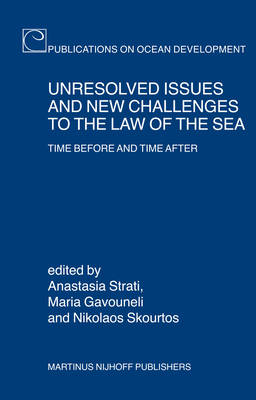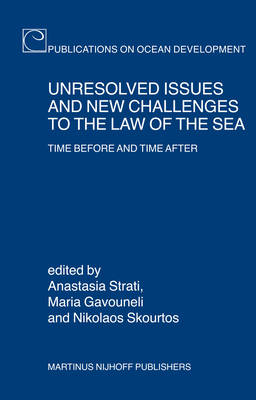
- Afhalen na 1 uur in een winkel met voorraad
- Gratis thuislevering in België vanaf € 30
- Ruim aanbod met 7 miljoen producten
- Afhalen na 1 uur in een winkel met voorraad
- Gratis thuislevering in België vanaf € 30
- Ruim aanbod met 7 miljoen producten
Zoeken
Unresolved Issues and New Challenges to the Law of the Sea
Time Before and Time After
€ 329,95
+ 659 punten
Omschrijving
This work analyzes the management of shared fish stocks; protection of the underwater cultural heritage; the possibilities of establishing marine protected areas and other means for safeguarding vulnerable marine ecosystems; the use of the high seas for intelligence as well as recent developments on interdiction of vessels on the high seas. Special emphasis is paid to the role of international courts and tribunals in the progressive development of the law of the sea as well as the ability of the UN Convention on the Law of the Sea to accommodate new uses and challenges, such as new concerns, new technological possibilities, in particular, new contexts and functions of established rules. The 1982 Convention seems capable of coping with most of them, although it remains useful to explore its possibilities and limits.
This work, covering many aspects, will be useful to anyone interested in the law of the sea.
This work, covering many aspects, will be useful to anyone interested in the law of the sea.
Specificaties
Betrokkenen
- Uitgeverij:
Inhoud
- Aantal bladzijden:
- 372
- Taal:
- Engels
- Reeks:
- Reeksnummer:
- nr. 54
Eigenschappen
- Productcode (EAN):
- 9789004151918
- Verschijningsdatum:
- 28/04/2006
- Uitvoering:
- Hardcover
- Formaat:
- Genaaid
- Afmetingen:
- 155 mm x 235 mm
- Gewicht:
- 797 g

Alleen bij Standaard Boekhandel
+ 659 punten op je klantenkaart van Standaard Boekhandel
Beoordelingen
We publiceren alleen reviews die voldoen aan de voorwaarden voor reviews. Bekijk onze voorwaarden voor reviews.







